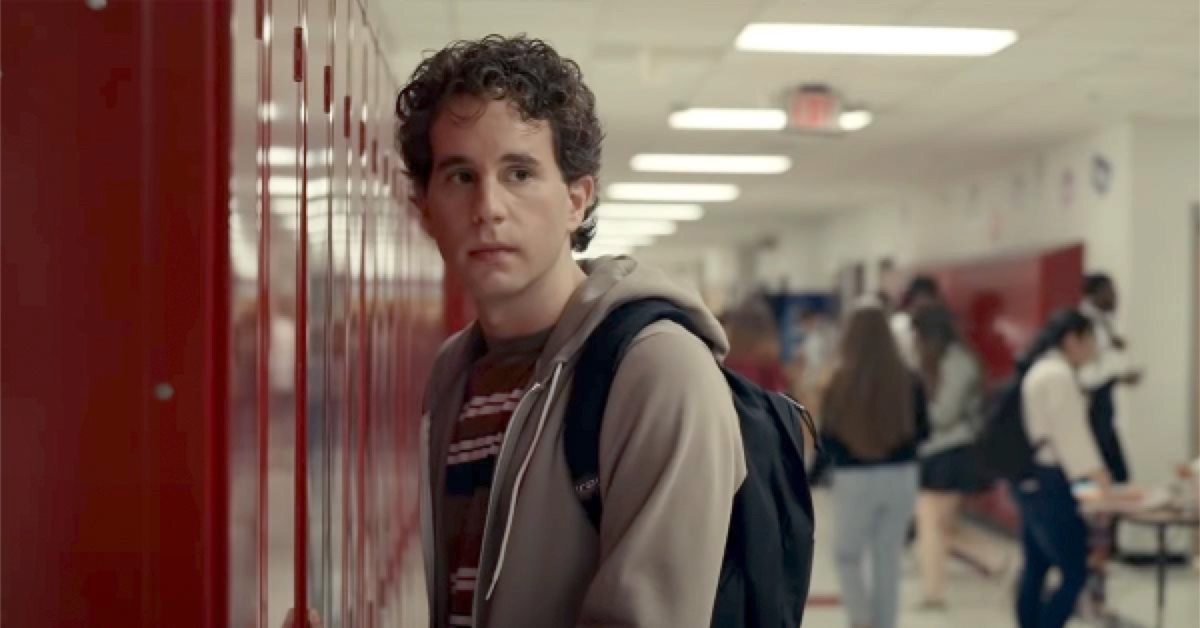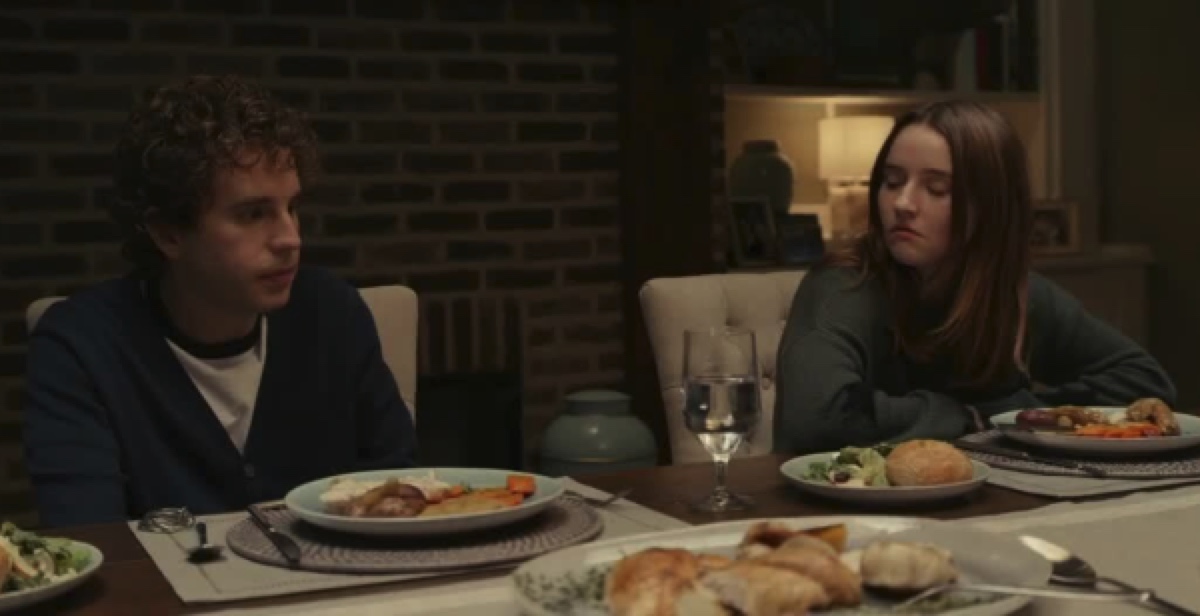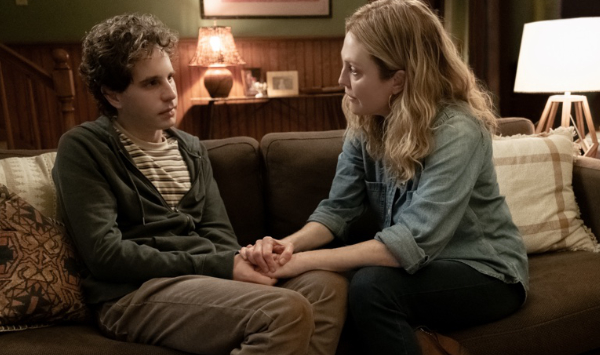Right off the bat I'm going to give the ***SPOILER ALERT*** because this isn't a review of the new movie, "Dear Evan Hansen," but rather a reflection based on my experience of the film and I do have to give away a bit of the story to do that.
Based on the Tony Award-winning musical of the same name, "Dear Evan Hansen" deals with serious subject matter that doesn't easily transform into entertainment: teen suicide, the grief and questioning that follows, and the overall social awkwardness and isolation that most teens experience at one time or another in high school that can lead to suicide in thought or action.
Here's the basic plot: Evan (Ben Platt, who reprises his Broadway role) types a letter to himself every morning at the suggestion of his therapist as a way to get him in a positive frame of mind for the day. But when one such letter falls into Connor's (Colton Ryan) hands, it catapults the story into some very uncomfortable directions.
A few days after Connor swiped Evan's letter off the school printer, Evan finds himself face-to-face with Connor's parents, mom Cynthia and step-dad Larry (Amy Adams and Danny Pino), who inform him that Connor has committed suicide. They hand Evan the letter, believing it to be Connor's suicide note, last words to a dear friend. When Evan tries to correct the misunderstanding, Cynthia won't hear it, so desperate is she to believe that her loner, problem son had at least one good friend. Evan, already mentally fragile, doesn't know what to do with that, so the socially awkward teen plays along with the misconception. It doesn't take much imagination to guess that things only go from bad to worse.

Ben Platt as Evan Hansen in "Dear Evan Hansen." © 2021 Universal Pictures. All Rights Reserved.
When I watched the film, initially my reaction was negative. This is not the first movie to use the small-lie-turns-into-a-big-problem-with-catastrophic-consequences concept, but it seemed too trite a way to treat such a serious issue as teen suicide. In some ways, Connor's off-screen suicide becomes only a device to set the story in motion, which is really about Evan's desire to be seen and heard, especially by his overworked and often unavailable single mom, Heidi (Julianne Moore). Oh, yeah, and by Zoe (Kaitlyn Dever), the girl he's had a crush on who happens to be Connor's sister. After all, the end doesn't justify the means, right?
In order to support the lie that Evan and Connor were friends, Evan has to create a fake relationship, telling stories about what they did together and fabricating emails between the two supposed friends. As Evan's high school classmates deal with the fallout of Connor's death, Evan is called upon to interact with people who, before this event, never thought twice about him.
Ironically, telling these stories gives Evan a way to express his own thoughts and feelings about things that he would never have otherwise had the courage to voice. People around him begin treating Evan as a confidante and he experiences a connection to others that he had craved for so long. He also gains a family. Because his own mother is hardly ever home, Evan begins spending time with Connor's family, just hanging out with Zoe, getting to know her better, or sitting down to a family dinner with the remaining Murphys.

Ben Platt as Evan and Kaitlyn Dever as Zoe in "Dear Evan Hansen." © 2021 Universal Pictures. All Rights Reserved.
Other good things come out of the initial misunderstanding. The highlight of the film, which is a musical, after all, is the song that Evan sings at the school's memorial for Connor. The song gets recorded and it goes viral on social media, with many people commenting on how much the song lifted them or loved ones up when they were down.
As a person of faith watching this movie, I wondered how to rejoice in the good that resulted from a lie. It seemed like the good things felt hollow because they originated in a place of untruth. Then I had a conversation with the film's director, Stephen Chbosky. I asked him about this and he reminded me that the song said nothing about the fake relationship between Evan and Connor. "You Will Be Found" is a hopeful anthem for anyone, socially awkward teen or not, who feels alone, ignored, or disconnected from others.
Chbosky went on to say that the Connor Murphy Memorial Orchard, a project of Evan and Alana (Amandla Stenberg), an activist classmate, was not a lie. It really was Connor's favorite place and the work that Alana and Evan did was not a lie.
So here's my confession: the more I think about this film, the more I'm convinced that it redeems itself in the end. I'm also confident that "Dear Evan Hansen" would be a great film to use with youth or young adult groups to get a conversation started about tough topics like mental health, suicide, isolation, truth, owning up to your mistakes, taking responsibility, how media tends to normalize homosexuality (with a token gay character), and many other worthy topics.
Here's the spoiler that I think is really important: Evan does come clean. He confesses his wrongdoing. After talking face-to-face with Connor's family, whose reputation has been seriously injured by developments, he takes to social media, posting a tell-all video, accepting the consequences that come. He's once again ostracized by classmates and his budding relationship with Zoe takes a hit.
As the aftermath of confession plays out, though, Evan seems to grow more balanced as a person. He has experienced what the pain and suffering caused by living a lie is like. He's forced to confront his own pain and suicidal thoughts but he also gains the courage to tell those he loves most about his inner struggles. He's experienced what it is like to connect with other people, to help them through difficult times and to accept help from others for his own difficulties.

Ben Platt as Evan and Julianne Moore as Heidi in "Dear Evan Hansen." © 2021 Universal Pictures. All Rights Reserved.
Oftentimes, when talking to Catholic filmgoers, they express dismay at seeing morally dubious situations on the screen. Without dismissing these concerns for they do exist, I sometimes respond by saying something like: "Well, you can't show redemption without the sin." Yes, Evan lied. There's no question that it was wrong. In "Dear Evan Hansen," what matters is that Evan saw the error of his ways and repented, showing much courage in his vulnerability.
Evan's a bit like the one lost sheep in the Gospel parable for whom the shepherd went searching, leaving the other 99 behind. When he finds that sheep, he hoists it on his shoulders and brings it home rejoicing. Just so does God rejoice over one repentant sinner (Matthew 18: 10-14). I pray that we can all take a page out of Evan's book and be as courageous in admitting our own mistakes, accepting their consequences, repenting of our wrongdoings, and then moving forward, confident in God's loving mercy.
About the Author
Sister Hosea Rupprecht is a member of the Daughters of St. Paul, a religious community dedicated to evangelization with the media. She holds a Master of Theological Studies degree from the University of St. Michael’s College in Toronto and an MA in Media Literacy from Webster University in St. Louis.
Sr. Hosea is director of the East Coast office of the Pauline Center for Media Studies, based in Staten Island, NY, and speaks on media literacy and faith to catechists, parents, youth, and young adults. Together with Father Chip Hines, she is the co-host of Searchlight, a Catholic movie review show on Catholic TV. Sr. Hosea is the author of How to Watch Movies with Kids: A Values-Based Strategy, released by Pauline Books & Media.
For the past 15 years, she has facilitated various film dialogues for both children and adults, as well as given presentations on integrating culture, faith and media.